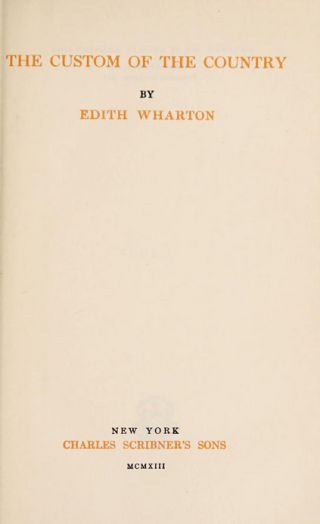In 1986, Janet Malcolm came out with guns blazing in a New York Times review of a new Library of America volume of Wharton’s novels. Titled “The Woman Who Hated Women,” the review’s central piece of evidence is The Custom of the Country. In Custom, Malcolm asserts, Wharton “takes her cold dislike of women to a height of venomousness previously unknown in American letters.” Malcolm’s essay is a fun, provocative read, but as a polemic it fails to convince. After all, must one like women to be a feminist, or even to evade the “misogyny” Malcolm accuses Wharton of harboring? The literary critic Arielle Zibrak, in “The Woman Who Hated Sex,” a 2016 essay whose title plays cheekily on Malcolm’s, reframes both Malcolm’s argument and the longer history of the “Is it feminist?” question about Custom. For Zibrak, the question is a nonstarter. Wharton was not personally a feminist, and The Custom of the Country’s portrayal of Undine reveals an undeniable anger at the figure of the young woman. Yet, as Zibrak points out, in the text’s forward-thinking critique of “consumerism supplanting sexual desire,” Wharton extends a prescient political analysis of the experience of white womanhood that is especially relevant to the twenty-first century’s “lean-in” and girlboss fame economies. The rollicking fun of The Custom of the Country may lie in a reader’s chance both to judge and cheer on Undine’s avaricious pursuit of what she wants. But the book’s deeper and lasting commentary seems to lie in its exploration of how and why, and under the pressure of what social and psychological forces, Undine has come to want what she wants at all.
Wharton’s prescience is tied to what was happening in her life: during the years in which she composed Custom, everything was collapsing around her. Her (by all accounts sexless) marriage to her husband, Teddy, had been disintegrating since the day the match was made, but it finally crumbled in the years between 1910 and their divorce in 1913. Her tumultuous affair with the bisexual writer Morton Fullerton came to a painful end in 1909, though they continued to correspond as intimate friends. As so much change unfolded, Wharton was trying to figure out not only what she wanted going forward—Who would she spend her time with? What would “home” look and feel like? What would her work be?—but also, tracing backward, how in the world she had ever come to want (or resign herself to) so many things that had turned out to be wrong.
